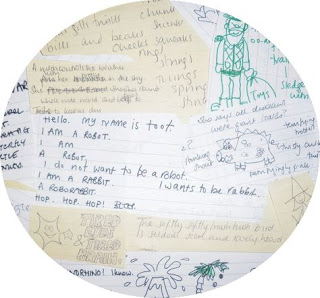I've been really busy with work recently. But not with writing; with events.
I love doing author events: school visits, literary
festivals and bookshop readings. It gives me a buzz to meet children, hear
their ideas, share stories and help them with their creative writing. But it takes its toll. It’s exhausting. There's the panic of
Will my train be on time?
Will the school’s technology be compatible with mine?
Will anyone come to the bookshop?
(see Michelle Robinson’s excellent list of other things to panic
about - here)
In day-long school events I might run up to six sessions for
Reception to Y6. So when I finally make it home I tend to crumple on the sofa
for the rest of the evening.
There’s been a lot of talk about author events in the book
world recently, including a fantastic post on author fees by Nicola Morgan, and
an article in the Guardian on the budgeting pressures faced by literature
festivals.
Pay is an important issue. Events are hard work and we
should be compensated fairly for our time. But some events don’t pay (eg
bookshop events); while others pay but not quite enough to reflect the work you
put in (lit fests). Then there’s the wider question of promotion in general –
hours spent (unpaid) on social media, blog posts, press articles.
As authors, how do we balance promotion and creation?
How much time should we spend selling the product rather than making it?
Some authors see promotion as very much part of their role.
I know a writer who does lots of free events, puts her own money and time into
marketing her books and works incredibly hard on promotion. I know another
writer who hates promotion – she devotes all her time to writing and, for her,
the best way to sell books is simply to write more (and better) books.
There are a growing number of lit fests across the country,
umpteen bookshops keen to have an author visit and oodles of book blogs to post
on. A writer could spend the entire year doing shows, bookshop readings,
articles and guest blogs - but every day spent doing promotion is one fewer in
which we could be writing.
How do we know if the time we spend promoting is worth it?
And what does ‘worth it’ even mean? There’s the financial angle: selling books,
promoting your brand. There’s the enjoyment angle: connecting with children,
seeing the impact of your book on the world. There’s also a doing-good factor:
maybe you’ll help a child learn to love books, or help a library stay open.
A very wise person, author Liz Kessler, devised a clever 'is it worth it?' formula (her post about it is here). She’s listed the
upsides and downsides of events, and devised a scoring system to weigh the
pluses against the minuses.
You score the following (each has a different maximum
value):
Sales (S) – out of 10
Payment (P) – out of 5
Word of mouth W) – out of 3
Time (T) – out of 10
Cost (C) – out of 3
Enjoyment (E)– out of 3
Good cause (G), ie where it’s for charity – out of 3
Then her formula goes:
(S
+ P + W) must be greater or equal to (T + C – E – G)
I like Liz’s formula and I often use it when considering
doing an event. But of course, it’s just a guide and you have to factor in your
personal preferences - for example, because I love doing events I allow myself
to score the enjoyment out of a higher number than 3. And I might consider the
good cause to be particularly worthy, thus worthy of being allotted more than 3
points. Also - sometimes the value of the event isn’t apparent until after it’s
over. A few weeks after one of my lower-selling events I got a letter from a
little girl saying how much she loved the book she had bought that day. That
alone made it worthwhile.
But the scoring system is a useful guideline and I’ve never
come up with a better one.
What about you?
How much of your time do you want to devote to promotion?
How do you decide which events, paid or unpaid, to give time
to?





